What a pleasure it is to have B-line gain international attention! I am humbled by the interest and support of news outlets like The New York Times and TIME Magazine as well as from our own community of friends and family. This recognition points to how far we have come and the exciting opportunities that lie ahead. B-line was founded to make the communities that we live, work, and play in more livable. We believe that a business can be a catalyst to the social and environmental changes that create resilient and thriving communities while also flourishing financially. In our fifth year on the road, this vision is stronger than ever and the press is welcomed, but not taken for granted.
Claire Martin’s New York Times article on Sunday, July 7th 2013 highlighted B-line’s role in the “greening” of a traditional industry. It was a great experience to speak with her and the photographer, Leah Nash, and to share our story on a the grand stage. Transferring all we do at B-line on to paper isn’t easy and while I was quite pleased with Claire’s article and Leah’s photos, there were some topics that were not included in the article that I’d like to highlight. Our journey falls on what Gary Erickson of Clif Bar, Inc calls a “white road” of business - one with exciting twist and turns, ever-changing horizons, and a set of challenges quite different from a company looking to maximize profits for its shareholders regardless of cost to the greater community or environment. As a certified B Corporation, and more importantly because we believe it just makes sense, B-line looks at the overall cost of doing business with a broader picture in mind. As such, I thought it appropriate to follow-up on the article with a look at what the future holds for B-line.
Our service often supplements or replaces delivery accounts / routes that our clients would otherwise be running internally. This means that asset usage, fuel cost, maintenance, liability, etc all begin to play a factor in the long-term savings a company may find with B-line. However, many companies do not break down their transportation cost to the "nth" degree and therefore may find it difficult to compare true cost. The general perspective of the business community at large is that we (and like-minded sustainable products and services) carry a premium price tag simply doesn’t tell the whole story. Moreover, our pricing, like any service or product, is also a function of total volume of goods delivered over time -- and in cases such as the service we provide to Dynamex, Inc for the delivery of Office Depot products, our pricing is consistent with this practice. On this note, in the fall of 2010 B-line worked closely with an MBA capstone project team from Portland State University to craft a cost calculator to help companies see the multifaceted nature of the cost of using a traditional van or truck based delivery service (internal or contracted) vs our service. Their analysis shows that, in general, there are cost savings if there are three or more stops of 600 pounds (or less) made per delivery route. For larger deliveries there was less or no cost savings, but clients still preferred B-line’s service for reasons of mission alignment, small (and often loyal) account retention, and opportunity cost. Their findings point to the both the economic viability of B-line serving those companies that demand a daily delivery service to multiple accounts within an central business district. This was a comprehensive study that continues to inform our model. Helping our partners and communities weigh the bigger picture of the cost associated with the growing demand for delivery of goods and services is part and parcel with our mission.
To facilitate a better understanding of our role in the world and to help articulate how we fulfill our mission B-line continues to refine how we measure ourselves. Stephanie Ryan from B-lab (the non-profit organization that supports B-Corporations) opened my eyes to this need, and we now use the B-lab Impact Assessment as a road map for everything from corporate governance to community involvement. Furthermore, refining how we measure our impact on the environment is critical to B-line’s success. To this end, we are continually discussing how to systemize our collections, analysis, and reporting of our metrics, such as working with advisors like professor Bill Jones from Portland State University to refine our Green House Gas (GHG) avoidance calculations.
Finally, as we look to expand into new markets, I am inspired by the impact on the quality of life B-line brings to our immediate community. Accolades and recognition aside, there are continual sources of psychic income: perspectives from employees like Bill Hewitt’s huge smile and “Boss - this is the best job I’ve ever had!”, the looks and approving head-nods of passer-byes on the streets, and the gratification of knowing we’ve helped rescue tons (literally) of fresh produce from the waste stream and brought that to organizations like Sisters of the Road to turn into fantastic meals. All of these assure me that we are on the right road and that our future holds promise.


